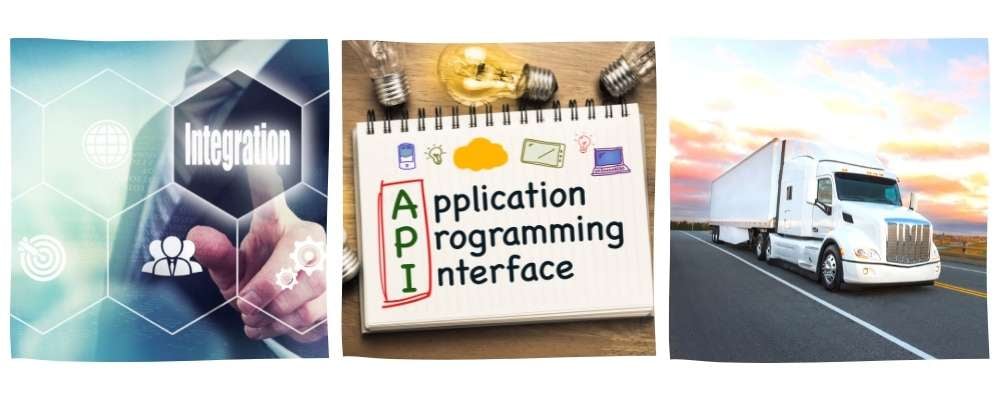This is the 2nd in our series all about API integrations in freight. If you missed the first one, about challenges & solutions, you can catch it here.
We know that APIs, having been around for years, are not going anywhere. The question to ask is are they being utilized to their full potential by freight brokers, logistics providers, and shippers? We're increasingly seeing how a company's use of APIs enables them to establish a competitive advantage in the market. In a survey of shippers, 60% of respondents said they were only somewhat familiar or completely unfamiliar with rating APIs—APIs that return rate quotes for the spot market. Such APIs create a gap between the market competitiveness of enterprises that do and don't adopt APIs. Many shippers are recognizing the value of APIs, as are partners in freight and logistics who must respond as a result.
Only 25% of respondents in the survey reported having no APIs with outside vendors, meaning the majority of shippers rely on APIs to some extent. From the shipper's standpoint, APIs enable them to save time and better optimize operations. They may apply APIs toward inventory and procurement, freight matching, visibility, and billing workflows, and the demand for these workflow integrations will only become increasingly important in the future.
The Evolution of APIs
In recent years, APIs have become an integral part of business processes within many companies. Many people in freight are acknowledging that EDIs are outdated. The evolution of this technology started with easier access to data—making important data available to other parties to view as a feed and interpret or analyze as they saw fit.
This most basic use of APIs provides users with data but ultimately does not perform any action using the data. For APIs to increase efficiency and streamline operations, they must use data toward a process. Many companies now rely on API integrations as a step in accomplishing specific tasks and workflows. One example is when a shipper obtains a rate for the spot market; the API that provides real-time, accurate rates helps support a more optimized spot rate process.
The best-leveraged API integrations assist an entire aspect of operations. This is automation. The API covers more than only pieces of the process but all aspects of the process that are best optimized by a machine, allowing the user to focus on tasks that a person does best. In the spot rate example, the API can handle the next need in the workflow of sourcing capacity and automatically handle any friction.
For most enterprises, API evolution remains in the early stages. Shippers are beginning to make substantial moves toward using APIs, and freight brokers, logistics providers, and carriers have the opportunity to be front-runners if they choose to respond to the industry demand, utilizing APIs to their full potential.
Getting the Most out of APIs
How can companies know whether they are getting the most of their APIs? There are two types of roadblocks most often encountered. The first is difficulty devoting the time needed to integrate and manage the large number of APIs available, which can be an overwhelming task to handle in-house. Consider how many APIs your company currently uses and whether you have been limited in your ability to manage additional integrations. The best solution, in this case, is to outsource integrations and free up in-house engineers to focus on higher-priority tasks. An API-experienced partner like Metafora can provide the most value for these freight brokers, logistics providers, and carriers developing their API integrations.
 The second challenge of APIs is fully leveraging the integrations that are in place. Assess the role your APIs play in various workflows. Are there redundancies or inefficiencies? Is there the potential to use the integrations toward better optimization or automation?
The second challenge of APIs is fully leveraging the integrations that are in place. Assess the role your APIs play in various workflows. Are there redundancies or inefficiencies? Is there the potential to use the integrations toward better optimization or automation?
Many freight partners have set up APIs but have yet to realize the potential of their APIs for streamlining operations and optimizing processes. This is the direction we're headed, where companies will need to rely on APIs to stay competitive, making now the time to take full advantage of APIs in freight.
Have you heard of the freight-specific integration solution from Metafora? It's called Socket and it is a configurable platform developed to enable easier, faster integration between shippers, brokers, and carriers, and technology providers while offloading maintenance and management of the integrations.
Interested? Have questions? Learn more about Socket here.






